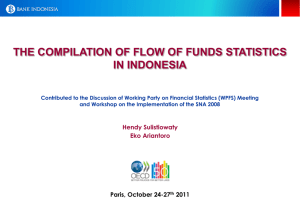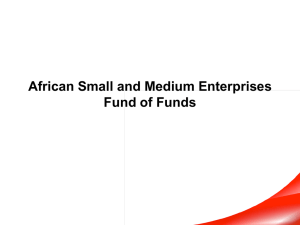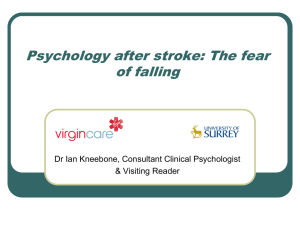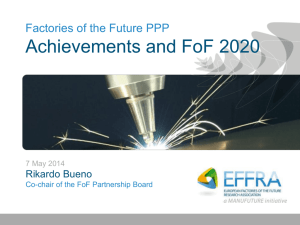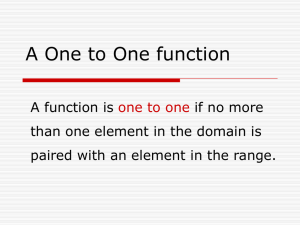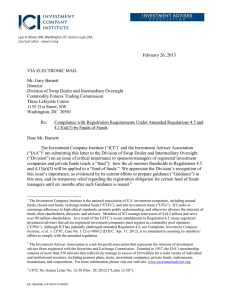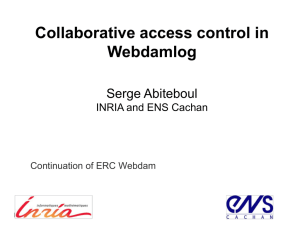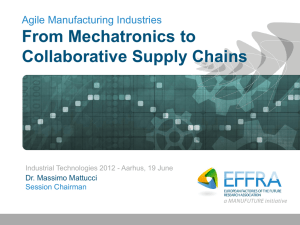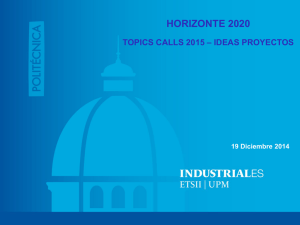HORIZON 2020 WORK PROGRAMME 2014 – 2015 5. Leadership
advertisement
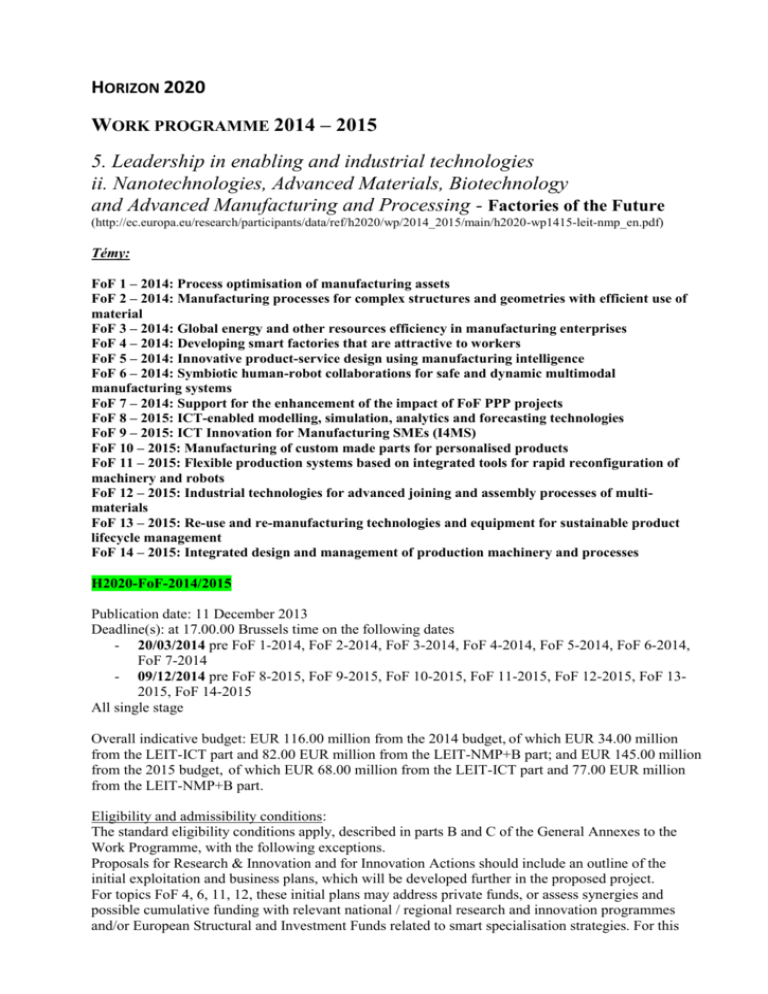
HORIZON 2020 WORK PROGRAMME 2014 – 2015 5. Leadership in enabling and industrial technologies ii. Nanotechnologies, Advanced Materials, Biotechnology and Advanced Manufacturing and Processing - Factories of the Future (http://ec.europa.eu/research/participants/data/ref/h2020/wp/2014_2015/main/h2020-wp1415-leit-nmp_en.pdf) Témy: FoF 1 – 2014: Process optimisation of manufacturing assets FoF 2 – 2014: Manufacturing processes for complex structures and geometries with efficient use of material FoF 3 – 2014: Global energy and other resources efficiency in manufacturing enterprises FoF 4 – 2014: Developing smart factories that are attractive to workers FoF 5 – 2014: Innovative product-service design using manufacturing intelligence FoF 6 – 2014: Symbiotic human-robot collaborations for safe and dynamic multimodal manufacturing systems FoF 7 – 2014: Support for the enhancement of the impact of FoF PPP projects FoF 8 – 2015: ICT-enabled modelling, simulation, analytics and forecasting technologies FoF 9 – 2015: ICT Innovation for Manufacturing SMEs (I4MS) FoF 10 – 2015: Manufacturing of custom made parts for personalised products FoF 11 – 2015: Flexible production systems based on integrated tools for rapid reconfiguration of machinery and robots FoF 12 – 2015: Industrial technologies for advanced joining and assembly processes of multimaterials FoF 13 – 2015: Re-use and re-manufacturing technologies and equipment for sustainable product lifecycle management FoF 14 – 2015: Integrated design and management of production machinery and processes H2020-FoF-2014/2015 Publication date: 11 December 2013 Deadline(s): at 17.00.00 Brussels time on the following dates - 20/03/2014 pre FoF 1-2014, FoF 2-2014, FoF 3-2014, FoF 4-2014, FoF 5-2014, FoF 6-2014, FoF 7-2014 - 09/12/2014 pre FoF 8-2015, FoF 9-2015, FoF 10-2015, FoF 11-2015, FoF 12-2015, FoF 132015, FoF 14-2015 All single stage Overall indicative budget: EUR 116.00 million from the 2014 budget, of which EUR 34.00 million from the LEIT-ICT part and 82.00 EUR million from the LEIT-NMP+B part; and EUR 145.00 million from the 2015 budget, of which EUR 68.00 million from the LEIT-ICT part and 77.00 EUR million from the LEIT-NMP+B part. Eligibility and admissibility conditions: The standard eligibility conditions apply, described in parts B and C of the General Annexes to the Work Programme, with the following exceptions. Proposals for Research & Innovation and for Innovation Actions should include an outline of the initial exploitation and business plans, which will be developed further in the proposed project. For topics FoF 4, 6, 11, 12, these initial plans may address private funds, or assess synergies and possible cumulative funding with relevant national / regional research and innovation programmes and/or European Structural and Investment Funds related to smart specialisation strategies. For this purpose the tools provided by the Smart Specialization Platform, Eye@RIS3 may be useful. The results of these activities as well as the envisaged further activities in this respect should be described in the final report of the project. Evaluation criteria: The standard evaluation criteria apply, described in part H of the General Annexes to the Work Programme, with the following exceptions: The threshold for the criteria Excellence and Impact will be 4. The overall threshold, applying to the sum of the three individual scores, will be 12. In case of equal overall scores in the ranked list, the priority order of proposals will be established in accordance with part H of the General Annexes, except that proposals will be ranked on the basis of individual scores for the Impact criterion before the Excellence criterion. Topics FoF 6, 11, 12: The evaluation criteria are applied as follows: 1. Excellence 2. Impact The extent to which the outputs of the project could contribute at the European and/or International level to: cts listed in the work programme under the relevant topic; manufacturing; be gained through the pilot line; results ,including appropriate management of IPR; te, to standards and to skills and educational training. 3. Quality and efficiency of the implementation and resources; RTOs, materials, equipment and technology suppliers and end-users); consortium as a whole;* luding risk management. Operational Capacity (selection criterion) * As a separate step in the evaluation, expert evaluators must indicate whether the members of the consortium possess at least the minimum competences needed to carry out the proposed work. Evaluation procedure: The full evaluation procedure is described in the relevant guide associated with this call. Consortium agreements: Signature of consortium agreements will be compulsory before the signature of the Grant Agreement for all Research and Innovation and all Innovation Actions.

